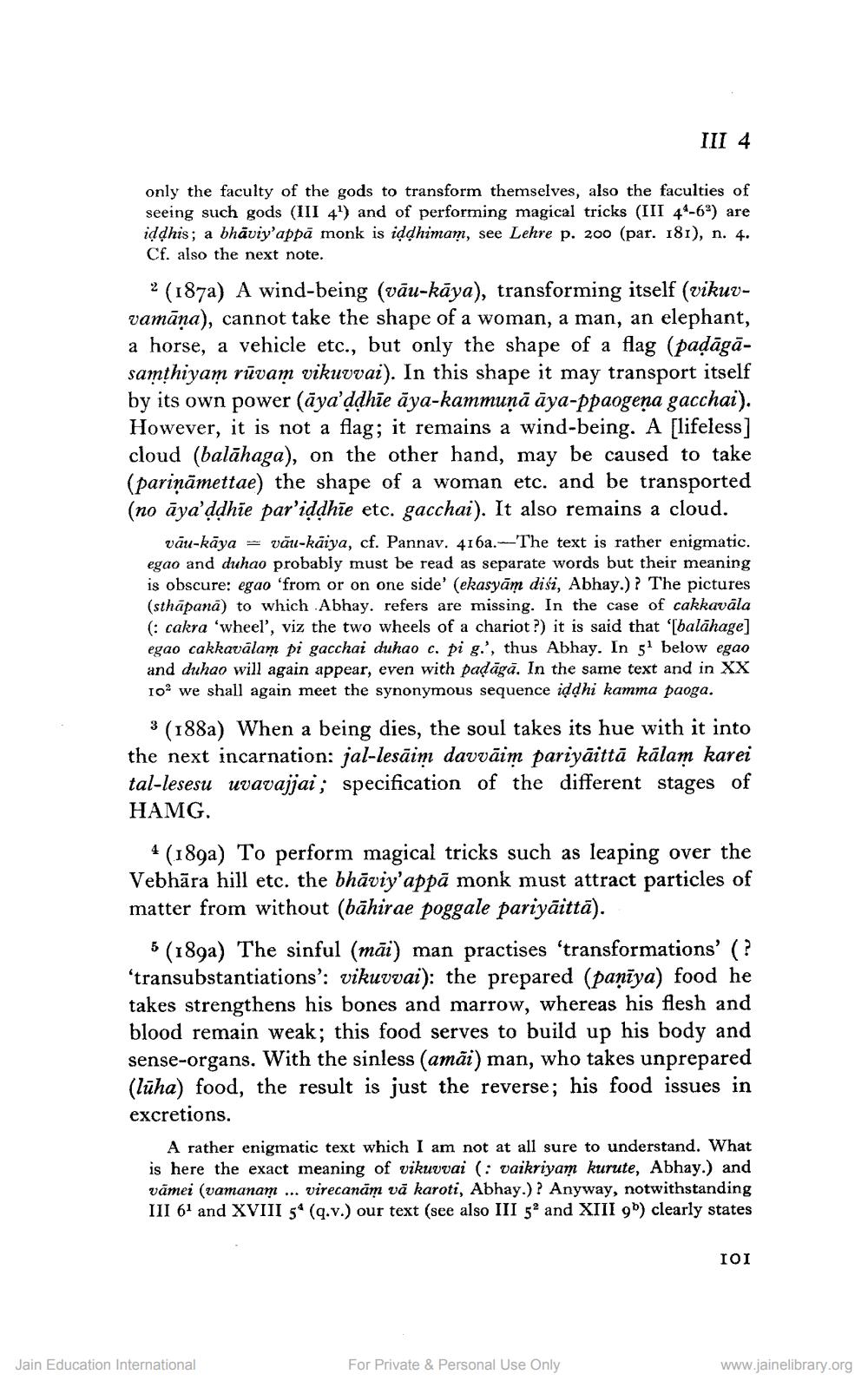________________
III 4
only the faculty of the gods to transform themselves, also the faculties of seeing such gods (III 4) and of performing magical tricks (III 44-6%) are iddhis; a bhāviy'appă monk is iddhimam, see Lehre p. 200 (par. 181), n. 4. Cf. also the next note.
2 (187a) A wind-being (vāu-kāya), transforming itself (vikuvvamāna), cannot take the shape of a woman, a man, an elephant, a horse, a vehicle etc., but only the shape of a flag (padāgāsamthiyam rūvam vikuvvai). In this shape it may transport itself by its own power (āya'ddhie āya-kammunā āya-ppaogena gacchai). However, it is not a flag; it remains a wind-being. A [lifeless] cloud (balāhaga), on the other hand, may be caused to take (pariņāmettae) the shape of a woman etc. and be transported (no āya'ddhie par'iddhie etc. gacchai). It also remains a cloud.
vāu-kāya = vāu-kāiya, cf. Pannav. 416a.--The text is rather enigmatic. egao and duhao probably must be read as separate words but their meaning is obscure: egao 'from or on one side' (ekasyām diśi, Abhay.)? The pictures (sthāpanā) to which Abhay. refers are missing. In the case of cakkavāla (: cakra 'wheel, viz the two wheels of a chariot?) it is said that '[balāhage] egao cakkavālam pi gacchai duhao c. pi g.', thus Abhay. In 51 below egao and duhao will again appear, even with padāgā. In the same text and in XX 10% we shall again meet the synonymous sequence iddhi kamma paoga.
3 (188a) When a being dies, the soul takes its hue with it into the next incarnation: jal-lesāim davvāim pariyāittā kālam karei tal-lesesu uvavajjai ; specification of the different stages of HAMG.
4 (1892) To perform magical tricks such as leaping over the Vebhāra hill etc. the bhāviy'appā monk must attract particles of matter from without (bāhirae poggale pariyāittā).
5 (189a) The sinful (māi) man practises 'transformations' (? 'transubstantiations': vikuvvai): the prepared (panīya) food he takes strengthens his bones and marrow, whereas his flesh and blood remain weak; this food serves to build up his body and sense-organs. With the sinless (amāi) man, who takes unprepared (lūha) food, the result is just the reverse; his food issues in excretions.
A rather enigmatic text which I am not at all sure to understand. What is here the exact meaning of vikuvvai (: vaikriyam kurute, Abhay.) and vāmei (vamanam ... virecanām vā karoti, Abhay.)? Anyway, notwithstanding III 61 and XVIII 5* (q.v.) our text (see also III 52 and XIII 9') clearly states
IOI
Jain Education International
For Private & Personal Use Only
www.jainelibrary.org




